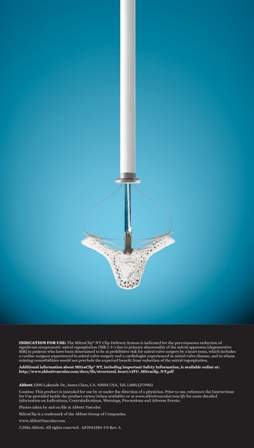
The cardiovascular outcomes assessment of the MitraClip percutaneous therapy for heart failure patients with functional mitral regurgitation (COAPT) study randomized 614 symptomatic heart failure patients with moderate-to-severe or severe secondary MR to secure treatment with MitraClip plus guideline-directed medical therapy or guideline-directed medical therapy alone at 78 sites in the US and Canada.
According to the company, the primary efficacy endpoint was all heart failure hospitalizations across two years and the primary safety endpoint was freedom from device-related complications at one year compared to a performance goal of 88%.
Secondary endpoints comprised of all-cause mortality at two years, change in quality-of-life at one year, change in functional capacity at one year, MR severity at one year and left ventricle size at one year.
The study is said to achieve both the primary safety and efficacy endpoints and all secondary endpoints.
It demonstrated treatment with MitraClip plus medical therapy was effective than medical therapy alone in reducing rates of heart failure hospitalizations and improving survival at two years
COAPT study co-principal investigator Dr Gregg Stone said: “These highly anticipated results from the COAPT trial are quite remarkable, and conclusively demonstrate that heart failure patients with clinically significant secondary mitral regurgitation who remain symptomatic despite best medical practices benefit from treatment with MitraClip.”
MitraClip has been developed to repair the mitral valve without using an invasive surgical procedure, and will be delivered to the heart through the femoral vein.
MitraClip receives a portion of the leaflets of the mitral valve with an implanted clip, enabling the heart to pump blood more effectively across the body.
The device secured CE mark approval in 2008, while approved by the US Food and Drug Administration (FDA) in 2013 for primary MR prohibitive risk patients.
Abbott structural heart business and chief medical officer Neil Moat said: “Abbott has led the way in developing minimally invasive solutions for some of the most complex challenges in patients with structural heart disease, and the COAPT study results show that MitraClip has the potential to help many more people with heart failure live better and longer, impacting both quality of life and survival.”





